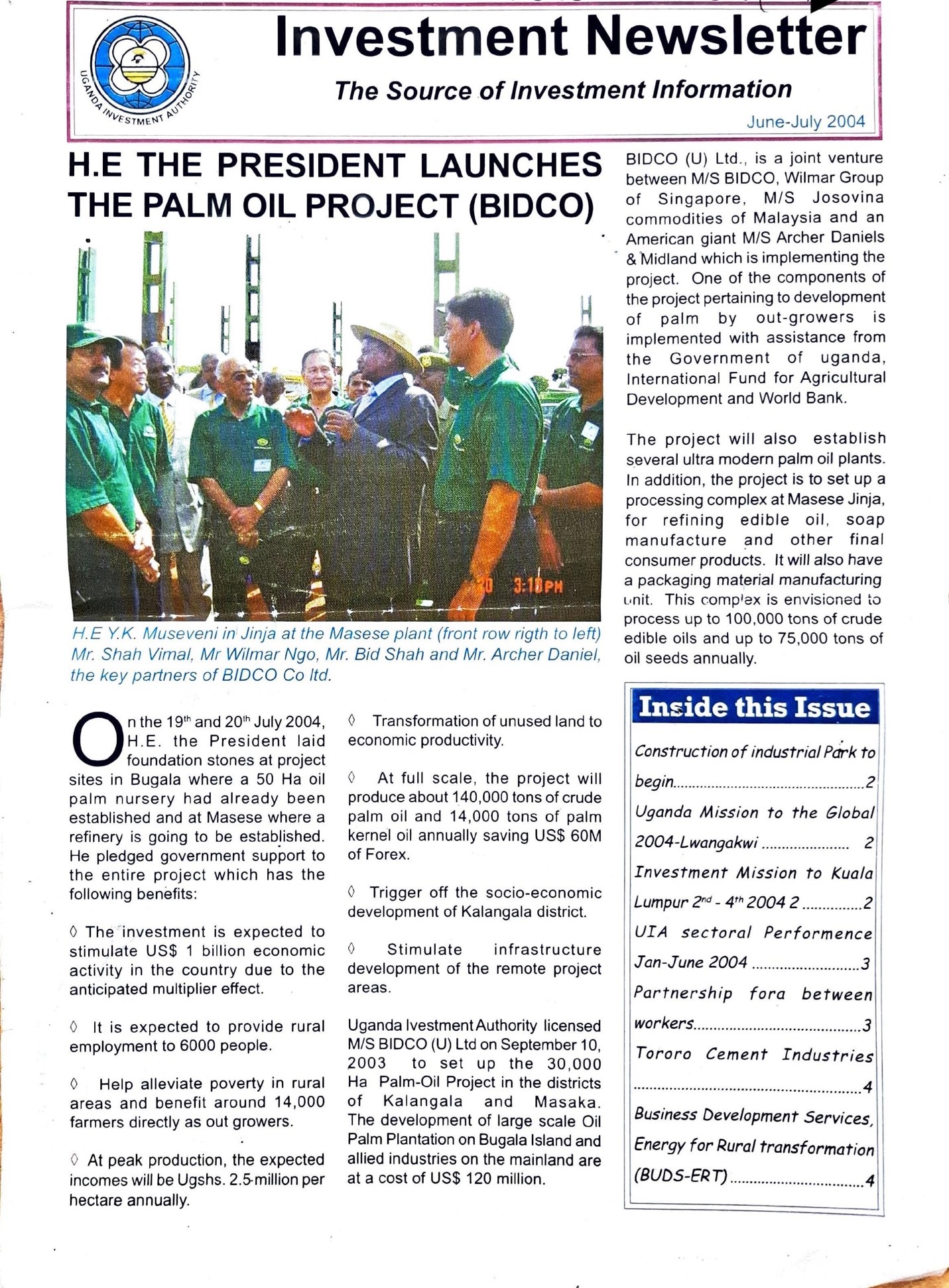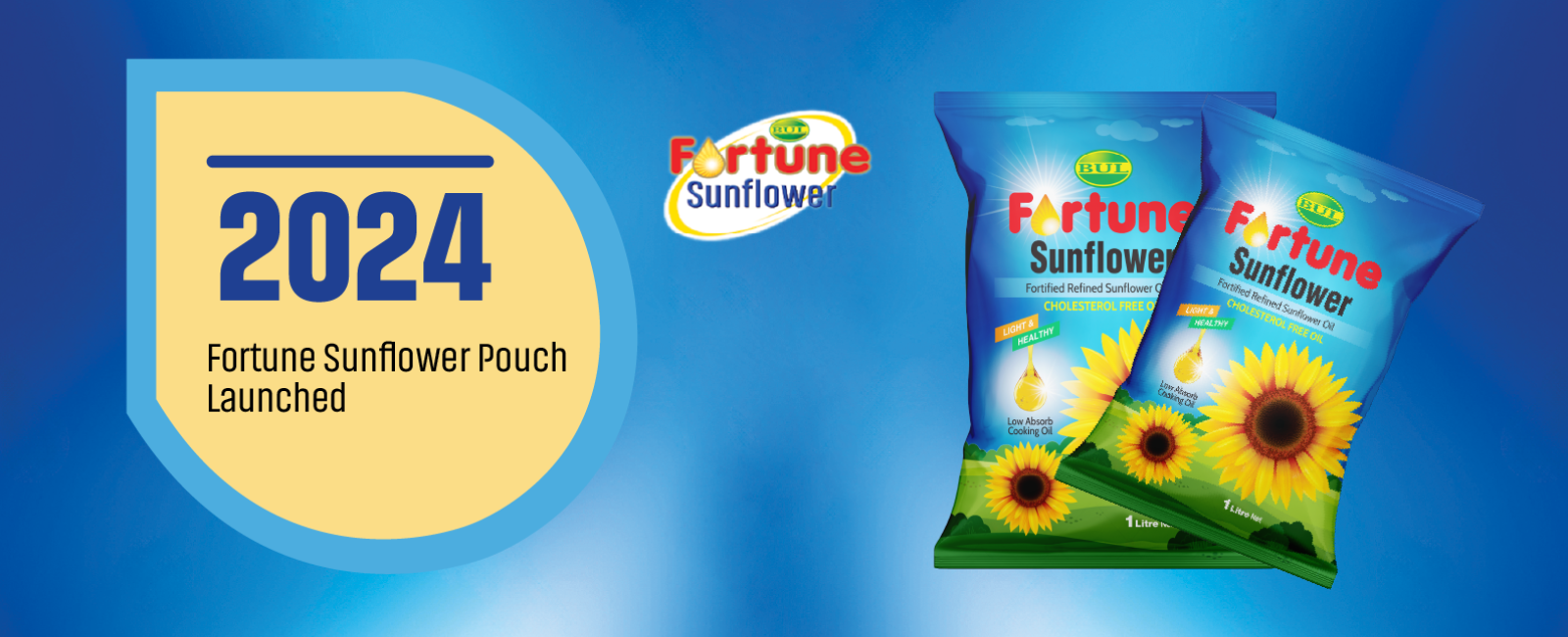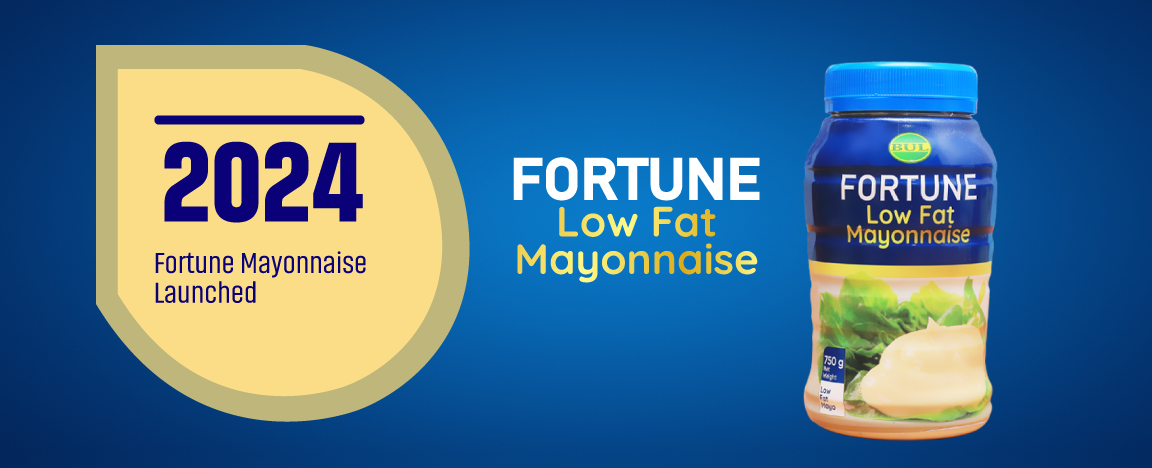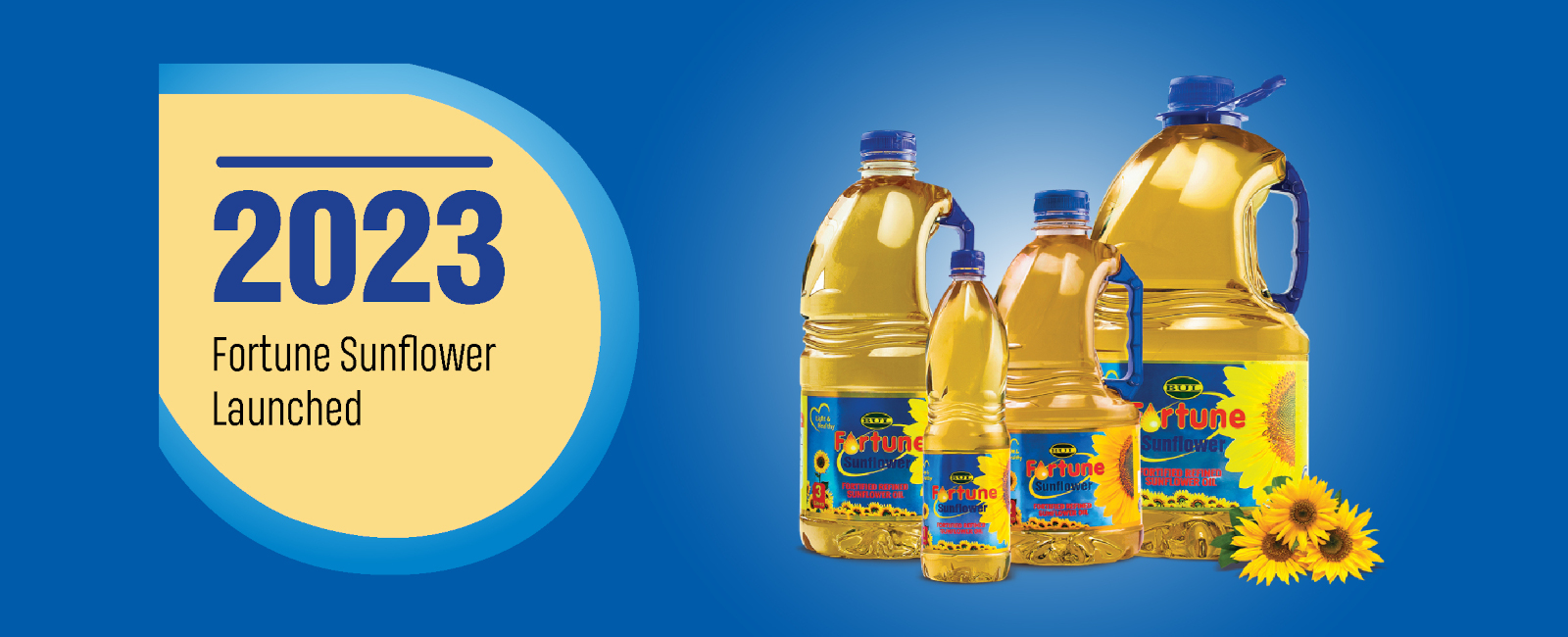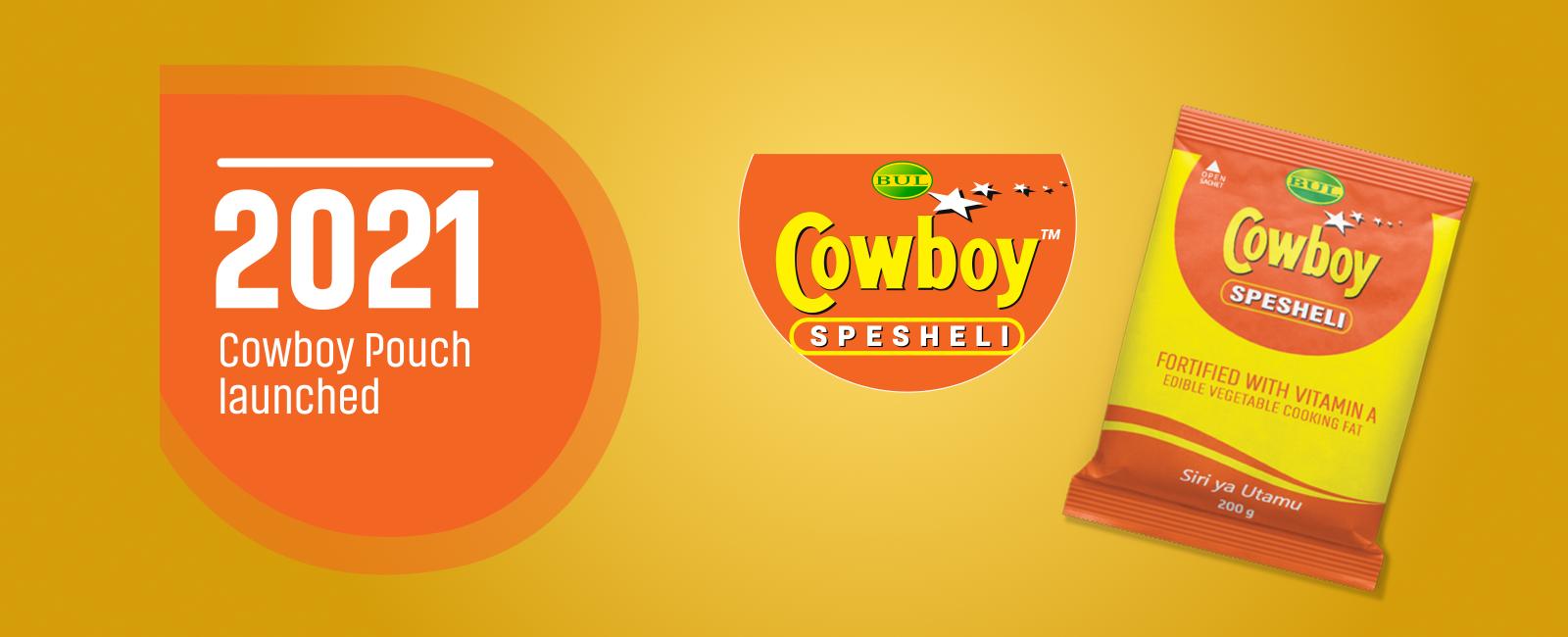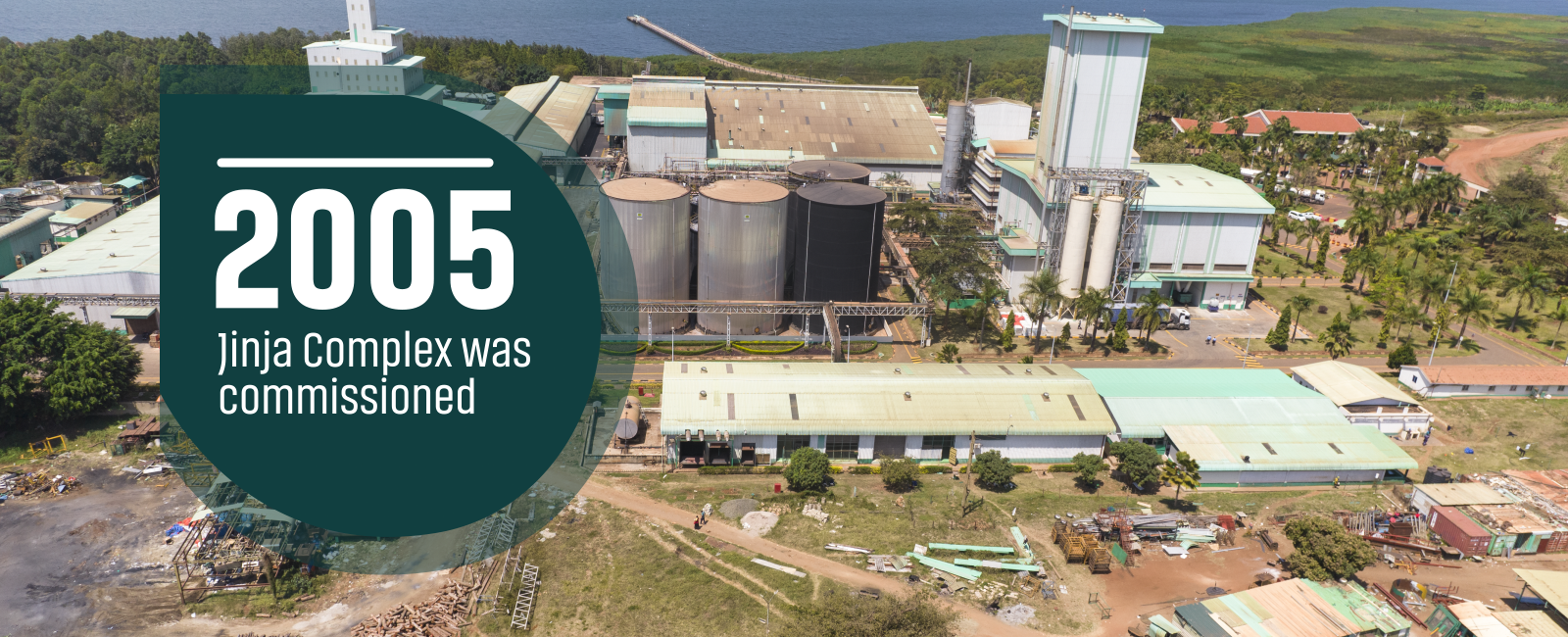
History & Milestones
Bidco Uganda Ltd (BUL) is Uganda’s leading agribusiness,
with integrated operations encompassing
upstream oil palm plantations and mills, midstream edible
oil refineries and downstream consumer
products. Today, BUL is the home of some of Uganda's most
loved brands for edible oils, hygiene and
personal care and food products.
BUL, together with the government of Uganda, signed
partnership agreements which led to allocations
of land in the different parts of the country to support our
idea of poverty alleviation, job
creation and reduce reliance on importation of crude
vegetable oil from Asia.
In 2003, Oil Palm Uganda Limited signed an agreement with the Uganda Government to undertake an integrated palm oil project in Kalangala District of Uganda. Kalangala Oil Palm project was and still is part of the Ugandan Government Vegetable Oil Development Project (VODP) initiative geared towards increasing vegetable oil production in the country. The project is supported by IFAD and the World Bank with Bidco Uganda Limited and Wilmar Plantations playing a major role.
On the 19th and 20th of July 2004, His Excellency, the President, laid foundation stones at two significant project sites—a 50-hectare oil palm nursery in Bugala and a refinery site at Masese in Jinja. This marked a momentous step in the realization of the BUL factory and the broader palm oil development initiative in Uganda. The President pledged unwavering government support to the entire project, which was poised to deliver substantial economic and social benefits to the country.
Project Benefits
The BUL factory project, alongside its allied developments, delivered far-reaching impacts:
- Economic Stimulation: The investment generated US$ 1 billion in economic activity within Uganda, driven by its significant multiplier effect.
- Employment Creation: Approximately 6,000 rural jobs were created, providing livelihoods and reducing unemployment in the target regions.
- Poverty Alleviation: Around 14,000 farmers directly benefited as out-growers, enabling them to achieve improved incomes and livelihoods.
- Enhanced Incomes: At peak production, farmers achieved annual incomes of UGX 2.5 million per hectare, significantly boosting rural prosperity.
- Land Transformation: The project converted previously unused land into economically productive areas, driving growth in rural regions.
- Foreign Exchange Savings: With an annual production capacity of 140,000 tons of crude palm oil and 14,000 tons of palm kernel oil, the project saved Uganda US$ 60 million in foreign exchange.
- Regional Development: The socio-economic transformation of Kalangala District was a key outcome, spurred by infrastructural improvements in previously remote project areas.
Key Investments and Partnerships
The Uganda Investment Authority had licensed BIDCO (U) Ltd on September 10, 2003, to establish the ambitious 30,000-hectare Palm-Oil Project spanning the districts of Kalangala and Masaka. The total investment for the development of large-scale oil palm plantations and related industries was estimated at US$ 120 million.
BIDCO (U) Ltd was a joint venture involving:
- M/S BIDCO,
- The Wilmar Group of Singapore,
- M/S Josovina Commodities of Malaysia, and
- The American giant Archer Daniels & Midland.
The out-grower development component of the project was supported by the Government of Uganda, the International Fund for Agricultural Development (IFAD), and the World Bank.
The out-grower development component of the project was supported by the Government of Uganda, the International Fund for Agricultural Development (IFAD), and the World Bank.
Advanced Facilities
The project included state-of-the-art facilities to bolster production and processing capabilities:
- Palm Oil Plants: Several ultra-modern palm oil plants were established to process the raw material into high-quality crude palm oil and palm kernel oil.
- Processing Complex: At Masese, Jinja, a comprehensive processing complex refined edible oils, manufactured soaps, and produced other consumer goods.
- Packaging Unit: An integrated packaging material manufacturing unit supported the end-to-end supply chain of BIDCO’s products.
The inauguration of the BUL factory represented a transformative milestone in Uganda’s industrial and agricultural sectors. By fostering rural employment, enhancing farmer incomes, saving foreign exchange, and spurring regional development, the project underscored the potential of strategic investments in agro-industry to drive sustainable development. Through collaboration with global and local partners, BIDCO (U) Ltd contributed significantly to the vision of a prosperous and self-reliant Uganda
This article credits the Uganda Investment Authority as its source.
Bidco Uganda Ltd (BUL) is Uganda’s leading agribusiness, with integrated
operations encompassing
upstream oil palm plantations and mills, midstream edible oil refineries
and downstream consumer
products. Today, BUL is the home of some of Uganda's most loved brands
for edible oils, hygiene and
personal care and food products.
BUL, together with the government of Uganda, signed partnership
agreements which led to allocations
of land in the different parts of the country to support our idea of
poverty alleviation, job
creation and reduce reliance on importation of crude vegetable oil from
Asia.
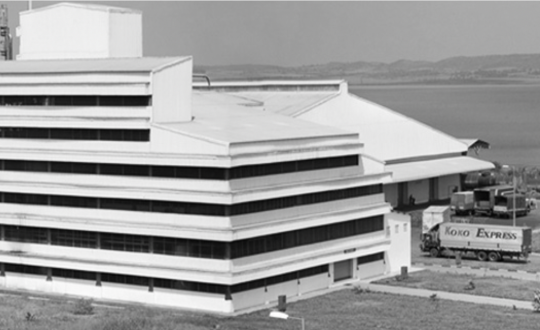
In 2003, Oil Palm Uganda Limited signed an agreement with the Uganda Government to undertake an integrated palm oil project in Kalangala District of Uganda. Kalangala Oil Palm project was and still is part of the Ugandan Government Vegetable Oil Development Project (VODP) initiative geared towards increasing vegetable oil production in the country. The project is supported by IFAD and the World Bank with Bidco Uganda Limited and Wilmar Plantations playing a major role.
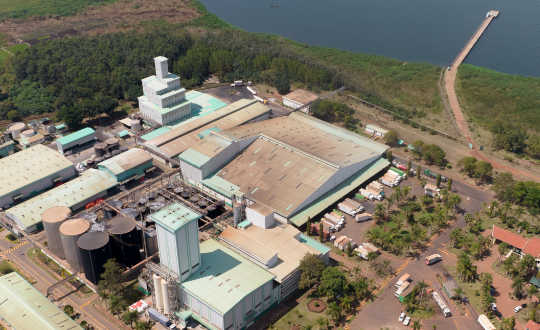
On the 19th and 20th of July 2004, His Excellency, the President, laid foundation stones at two significant project sites—a 50-hectare oil palm nursery in Bugala and a refinery site at Masese in Jinja. This marked a momentous step in the realization of the BUL factory and the broader palm oil development initiative in Uganda. The President pledged unwavering government support to the entire project, which was poised to deliver substantial economic and social benefits to the country.
Project Benefits
The BUL factory project, alongside its allied developments, delivered far-reaching impacts:
- Economic Stimulation: The investment generated US$ 1 billion in economic activity within Uganda, driven by its significant multiplier effect.
- Employment Creation: Approximately 6,000 rural jobs were created, providing livelihoods and reducing unemployment in the target regions.
- Poverty Alleviation: Around 14,000 farmers directly benefited as out-growers, enabling them to achieve improved incomes and livelihoods.
- Enhanced Incomes: At peak production, farmers achieved annual incomes of UGX 2.5 million per hectare, significantly boosting rural prosperity.
- Land Transformation: The project converted previously unused land into economically productive areas, driving growth in rural regions.
- Foreign Exchange Savings: With an annual production capacity of 140,000 tons of crude palm oil and 14,000 tons of palm kernel oil, the project saved Uganda US$ 60 million in foreign exchange.
- Regional Development: The socio-economic transformation of Kalangala District was a key outcome, spurred by infrastructural improvements in previously remote project areas.
Key Investments and Partnerships
The Uganda Investment Authority had licensed BIDCO (U) Ltd on September 10, 2003, to establish the ambitious 30,000-hectare Palm-Oil Project spanning the districts of Kalangala and Masaka. The total investment for the development of large-scale oil palm plantations and related industries was estimated at US$ 120 million.
BIDCO (U) Ltd was a joint venture involving:
- M/S BIDCO,
- The Wilmar Group of Singapore,
- M/S Josovina Commodities of Malaysia, and
- The American giant Archer Daniels & Midland.
The out-grower development component of the project was supported by the Government of Uganda, the International Fund for Agricultural Development (IFAD), and the World Bank.
The out-grower development component of the project was supported by the Government of Uganda, the International Fund for Agricultural Development (IFAD), and the World Bank.
Advanced Facilities
The project included state-of-the-art facilities to bolster production and processing capabilities:
- Palm Oil Plants: Several ultra-modern palm oil plants were established to process the raw material into high-quality crude palm oil and palm kernel oil.
- Processing Complex: At Masese, Jinja, a comprehensive processing complex refined edible oils, manufactured soaps, and produced other consumer goods.
- Packaging Unit: An integrated packaging material manufacturing unit supported the end-to-end supply chain of BIDCO’s products.
The inauguration of the BUL factory represented a transformative milestone in Uganda’s industrial and agricultural sectors. By fostering rural employment, enhancing farmer incomes, saving foreign exchange, and spurring regional development, the project underscored the potential of strategic investments in agro-industry to drive sustainable development. Through collaboration with global and local partners, BIDCO (U) Ltd contributed significantly to the vision of a prosperous and self-reliant Uganda
This article credits the Uganda Investment Authority as its source.
